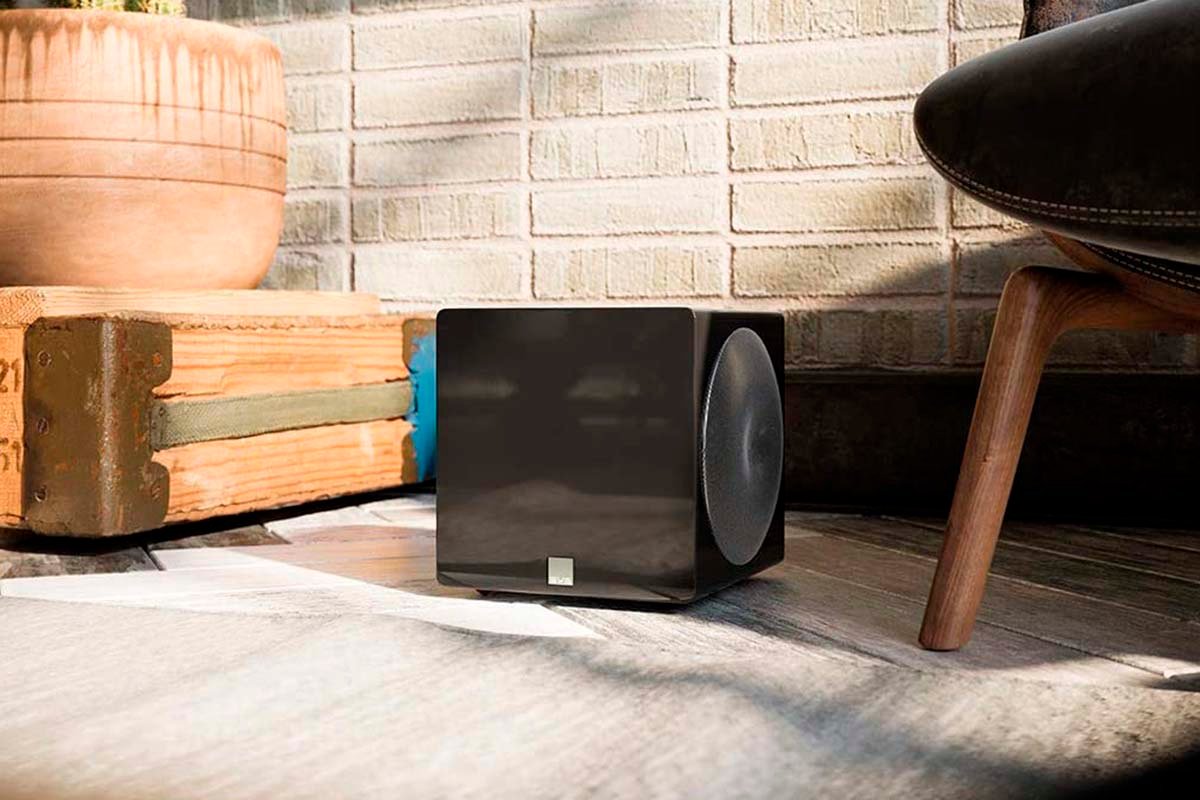Have you ever turned up the volume when your favorite song comes on, only for your speakers to crackle? It’s an obnoxious noise, but what exactly causes speakers to crackle?
Speakers can crackle when turning the volume up, due to a poor connection, interference from nearby electrical devices, amplifier problems, poor subwoofer positioning, dust, voice coil issues, or problems with the cone.
Read on to learn about eight common causes for speakers to crackle when you turn up the volume and how you can fix the issues.
Page Contents
1. Poor Connection Between the Speakers and Audio Device

A bad connection between your speakers and the audio device is the most common cause of crackling sounds when you turn up the volume.
It may be that the speakers have not been plugged in securely, which is easy to check.
If the speakers are plugged in correctly, the problem could be with a corroding connection point. Connection points suffer from wear and tear, with the cable sometimes coming loose and the wires inside becoming exposed and then damaged.
Damaged or frayed wires will make crackling or popping sounds, especially at high volume, as this causes them to vibrate more.
How To Fix
Check if your speaker is plugged into the device correctly; if not, plug it in securely.
If that doesn’t work, you may have damaged wires, in which case they will need to be either repaired or replaced. Alternatively, replacing the entire connection is more convenient if it is too time-consuming to replace the damaged wires.
2. Interference From Nearby Electrical Devices
All electrical devices have a strong electromagnetic field surrounding them, and this can affect other gadgets a few feet away.
Electromagnetic fields can interfere with the electrical signals of other electrical devices in their range, including speakers.
This can cause speakers to make unpleasant sounds when they play at a high volume, even though most good-quality speakers have decent electromagnetic shielding that helps prevent electrical interference.
How To Fix
If you suspect that electrical interference is causing the crackling sound in your speakers when the volume is turned up, try switching off any nearby electrical devices that you cannot quickly move away.
Otherwise, move the electrical devices away from your speakers and see if this helps.
3. Wiring Inside the Speaker

The wires inside your speaker transport the electrical current from the external parts to the internal speaker components that generate sound.
Loud volume causes more vibrations inside the speaker and the loose wires move around, temporarily breaking, and creating the crackling sounds you hear.
How To Fix
You can solve this problem by opening up the speaker and identifying loose, frayed, or broken wires.
You can either repair them with a soldering iron or replace them with new wires, if you find any. Loose wires can be reconnected by tightening the connection.
4. Problems With the Amplifier

The older your amplifier is, the more likely it is to cause crackling sounds in the speakers. Here are some common amplifier problems that can cause crackling noises:
Wear and Tear
Amplifier parts wear down over the years, resulting in poor connections between the various components and creating unwanted sounds in the speakers.
If your speakers crackle when you play bass at high volume, it is often shaking the amplifier around, resulting in any loose parts or wires creating the crackles.
A damaged amplifier can produce decent sound at a low volume, but high volume sounds can contain crackling noises.
Damaged Pre-Out Cable
Suppose your speaker is connected to an external amplifier. In that case, it will be connected via a pre-out cable, which instructs the speaker to bypass the built-in amplifier and use the external one instead.
A damaged pre-out cable can also cause unpleasant crackling noises in the speaker when the audio is played at a high volume.
Mismatched Amplifier and Speakers
By connecting an amplifier that is too powerful (or not powerful enough) for your speaker, you could be either under or overpowering it.
In both cases, this can cause the speaker’s cone and voice coil to vibrate unnaturally, causing an unpleasant crackling sound, especially at a high volume.
How To Fix
Once you have identified the amplifier part causing the crackling noises, you can either repair it or, if it is too difficult or not worth the cost of repair, replace it with a new part.
If your speaker and amplifier are mismatched, consult the user manual and connect a correctly-powered amplifier instead.
5. Position of the Subwoofer

It may sound oversimplified, but if your speakers are too close to the subwoofer, this can make them produce crackling sounds when you play audio at a high volume.
When your subwoofer is right next to your wifi router, it can also cause crackling in the speakers, which is more noticeable at a louder volume.
How To Fix
If the subwoofer is causing your speakers to make a crackling sound at a high volume, the solution is easy, doesn’t cost anything, and only takes a few seconds.
You can move the subwoofer away from your speaker or move the subwoofer away from your wifi router.
6. Dusty Speaker and Amplifier
After a few years, your speakers and amplifier can accumulate a lot of dust and fine dirt.
This can clog the internal components up, result in moisture build-up and cause some parts to rust and corrode.
Whenever any part becomes loose, it can shake around at a high volume and create a crackling sound.
How To Fix
It is always a good idea to clean your amplifier and speakers annually (you can have them cleaned professionally if you are unconfident about opening them up). You might also want to move the speaker away from a place you know experiences a lot of dust.
7. Damaged and Misplaced Voice Coil

A speaker’s voice coil is located inside the magnet, and there is a small space separating these two parts.
When the voice coil has come loose, it can vibrate when the volume is high and start touching the magnet. This creates a crackling sound and gets worse as the volume increases.
Voice coils can become loose due to the housing or connectors being worn down and no longer providing enough tension.
If you have recently had your speaker’s voice coil replaced, it may have been installed incorrectly or not secure enough.
How To Fix
Open up the speaker and check if the voice coil is in the correct position.
If the voice coil has come loose, check what is causing this to happen, and then either connect it more tightly or repair any connectors that look worn out, frayed, or damaged.
A damaged voice coil is difficult and expensive to repair, and it is often more cost-effective to replace it.
8. Cone Issues
The cone in a speaker is a vital component as it creates sound waves when the coil is activated and forces the air back and forth.
When there is a problem with the cone, it can make a hissing or crackling sound when the sound is turned up.
A torn or ripped speaker cone typically happens due to normal wear and tear or when an under or overpowered amplifier is connected to the speaker.
When the volume is turned high, it can make a crackling or buzzing sound.
As its name suggests, the cone is conically shaped, and you can view it when opening up the speaker. If the cone-shaped part looks torn, you likely have a ripped cone.
Sometimes, the wires connecting the speaker’s cone to the power source become worn, frayed, or damaged.
When this happens, the cone cannot vibrate normally as the electrical current has been interrupted.
How To Fix
Torn cones are notoriously tricky and often impossible to repair. Your best bet is to replace it with a new one.
If the wires connecting the cone to the power source are loose or broken, you can repair or replace them or replace them with new wires if you think that they are beyond repair.
Summary
Many different scenarios can cause speakers to crackle when you turn up the volume. The most common cause is a poor connection between the speaker and the audio device.
However, it is also likely that the speaker is experiencing interference from nearby electrical devices. There may be an issue with the amplifier, the subwoofer’s position may be problematic, or the cone faulty. The voice coil may also be damaged or loose.

